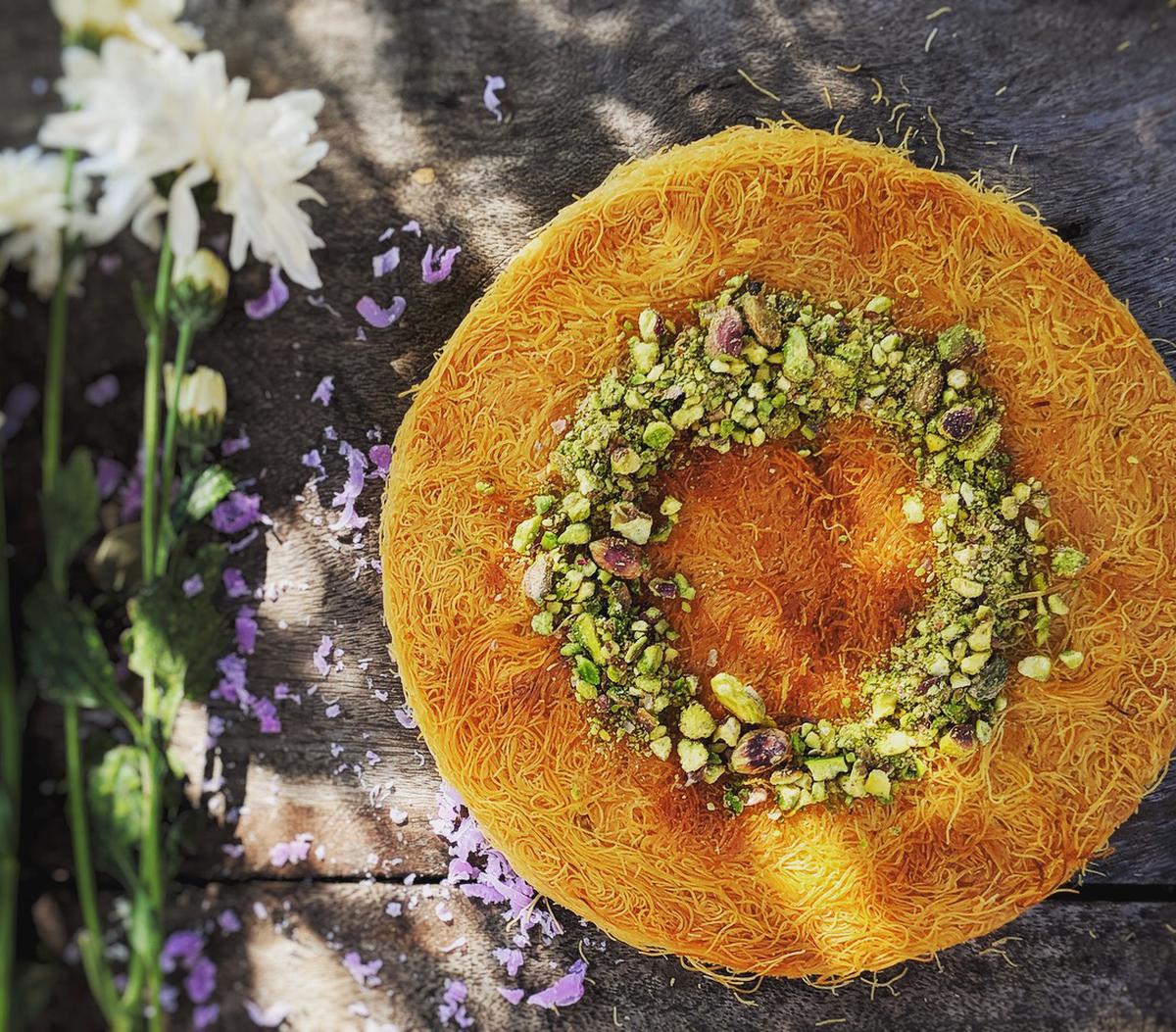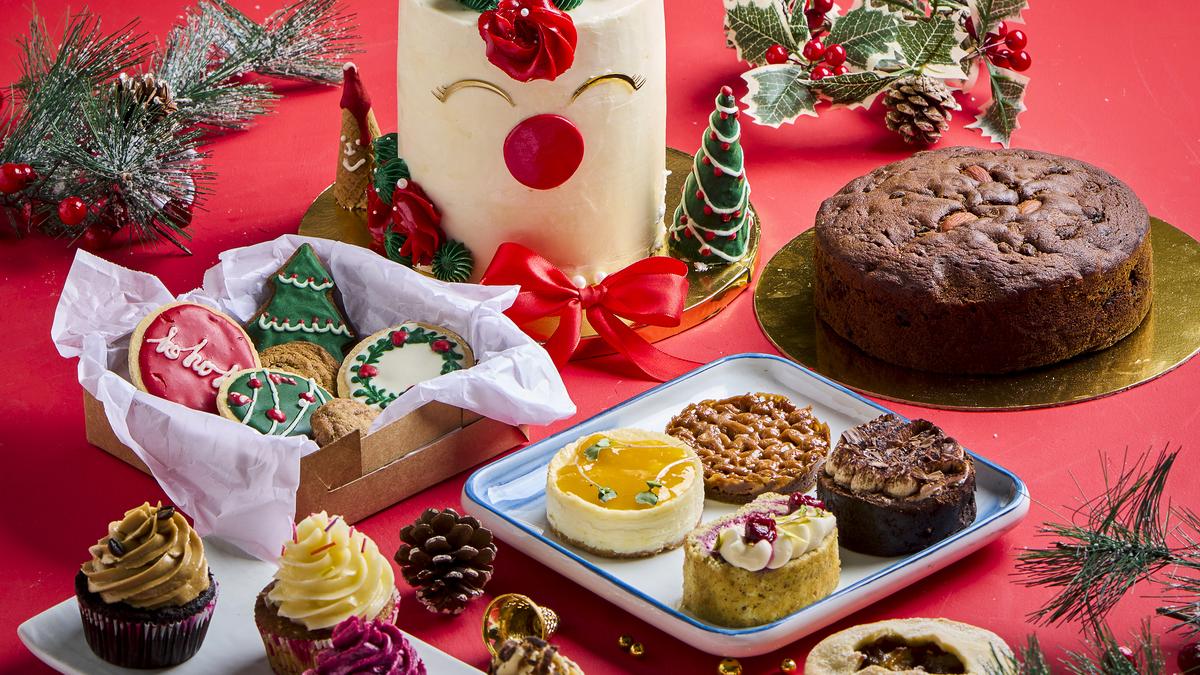The chicken for kuzhimandi being taken out of the pit in which it is cooked at Al Reem, Thammanam, Kochi
| Photo Credit: THULASI KAKKAT
Biryani vs mandi is a legit debate in Kerala today. Over the past decade, the subtly flavoured yet satisfying Yemeni dish has crept into the Malayali food scene and has now acquired the status of “an emotion”. While its distant cousin, the biryani, is still the most ordered dish according to a popular food aggregator platform, it is the age of the mandi in Kerala. Known in local parlance as kuzhimandi (kuzhi meaning pit), entire meme wars are fought over the mandi supremacy and restaurants serving it exclusively have mushroomed across the State.
A typical mandi is rice and meat, flavoured with spices and cooked in a pit. Lighter in comparison to the average biryani made in Kerala with a unique smoky flavour, what is it about the mandi that has made it a household name?
“It is the Malayali’s love of rice,” says Sakeer PK, partner of Al Reem, a restaurant chain in Kerala, which sells mandi exclusively. “Rice and meat is a winning combination in Kerala and the mandi is the best example of this. It is not heavy on masala, ghee and oils like biryani. Also, it is available for reasonable rates. One full mandi can be shared by four to five people,” he says.
Started in Malappuram in 2010, Al Reem today has seven branches in Kerala, four of them in Kochi. While mutton is traditionally used in mandi, chicken mandi has more takers in Kerala, Sakeer adds. The restaurants have live kitchens where diners can see it being cooked. “We serve different kinds of mandi, which include spicy and non-spicy versions,” says Sakeer.
Peri peri al fahm mandi at Al Reem, Thammanam, Kochi
| Photo Credit:
THULASI KAKKAT
Kerala’s deep-rooted connection with West Asian countries is another reason for the popularity of Arabian foods in the State, says Mihraz Ebrahim, managing director of PKS Hospitality that has partnered with Tikka&Kabab Ameen, an iconic Bahraini restaurant chain that was established in Baharain in 1948. “Malayalis are not new to West Asian cuisine; most families have people who have lived in these countries or visited the countries and are familiar with the food. Like the Arabs, we are essentially rice eaters, too. When we did a market study, we found that the demand for Arabian food was high and that the market has huge potential,” says Mihraz.
Tikka&Ameen was opened on the Kaloor-Kadavanthra road in Kochi in 2023 and one year since, the response has been overwhelming, says Mihraz. “We serve authentic Bahraini cuisine that is mild in flavour.” The popular items on the menu are the rice dishes such as mutton madfoon and chicken buhari, followed by grilled platters of beef, chicken, mutton and the signature tikkas and kebabs.
Mohammed Hisham launched his restaurant Mehrab Mandi, an exclusive Yemeni restaurant in Kochi 2021. “The authentic West Asian mandi is subtly flavoured. We wanted to bring in the real mandi to Kerala and brought in a Yemeni chef, who stayed for a year, training the chefs,” says Hisham. Mutton mandi is the most sought after at Mehrab, he adds. Another popular item on the menu is the fahsa saltah, a traditional Yemeni roti and stew, cooked in a special pot brought in from Yemen.

Kunafa by Sweet Smith
| Photo Credit:
Special Arrangement
Ten years ago in Kochi, it was just the al fahm, shawarma and shawaya (grilled chicken); but today, every corner of the city has an Arabian food joint offering something more than the basic, says Shihas C Hamza, owner of Zaatar, an Arabian-Indo fusion restaurant in Kochi. “Our menu is our interpretation of popular Arabian dishes.” The most ordered dish here is zerphian, a mandi-like item made of rice and mutton. “It is a take on the original Lebanese zurbian, a rice and meat dish,” he adds. Another example is the ali-nazik, a Turkish dish made using tenderloin beef with a mix of smoked eggplant and yoghurt puree. It is originally made using mutton.
Crazy about kunafa
Kunafa is to desserts what mandi is to main course. The crispy dessert of West Asian origin, called knafeh, with a spun pastry and cheesy-creamy centre, soaked in sugar syrup, is one of the most loved desserts in Kerala today. When Sonam V Safeed launched her label Sweet Smith in 2017 in Kochi, few had heard of the sweet.
“Today, it is extremely popular. We serve the classic kunafa with a cream and cheese filling,” says Sonam, whose sister Sana V Safeed handles the business in Kozhikode. With two central kitchens, one in Kochi and Kozhikode, the brand caters to Kollam and Thiruvananthapuram; Tirupur and Coimbatore in Tamil Nadu and Mysuru in Karnataka. The oven-baked kunafa is best eaten warm, says Sonam. Sweet Smith now offers Egyptian dessert Umali made of a phyllo sheet crispy base, soaked in cream and topped with nuts. “All the desserts are made in house; the Umali is our interpretation of the original dish; it is a widely-accepted dessert in Kerala, after the kunafa,” says Sonam. Sweet Smith serves baklavas as well.
Shihas along with his business partner Firose SMV started an Arabian food joint on MG Road 10 years ago. Though it didn’t take off initially, the duo realised that the demand for West Asian food was set to rise in Kerala. They opened Zaatar in Panampilly Nagar in 2016 and today, it has four outlets — two in Kochi (Panampilly Nagar and Palarivattom), one in Kozhikode and one in Qatar. “The Arabian food explosion is here to stay. Just as Kerala saw a Chinese food wave, it is now the Arabian moment.”




